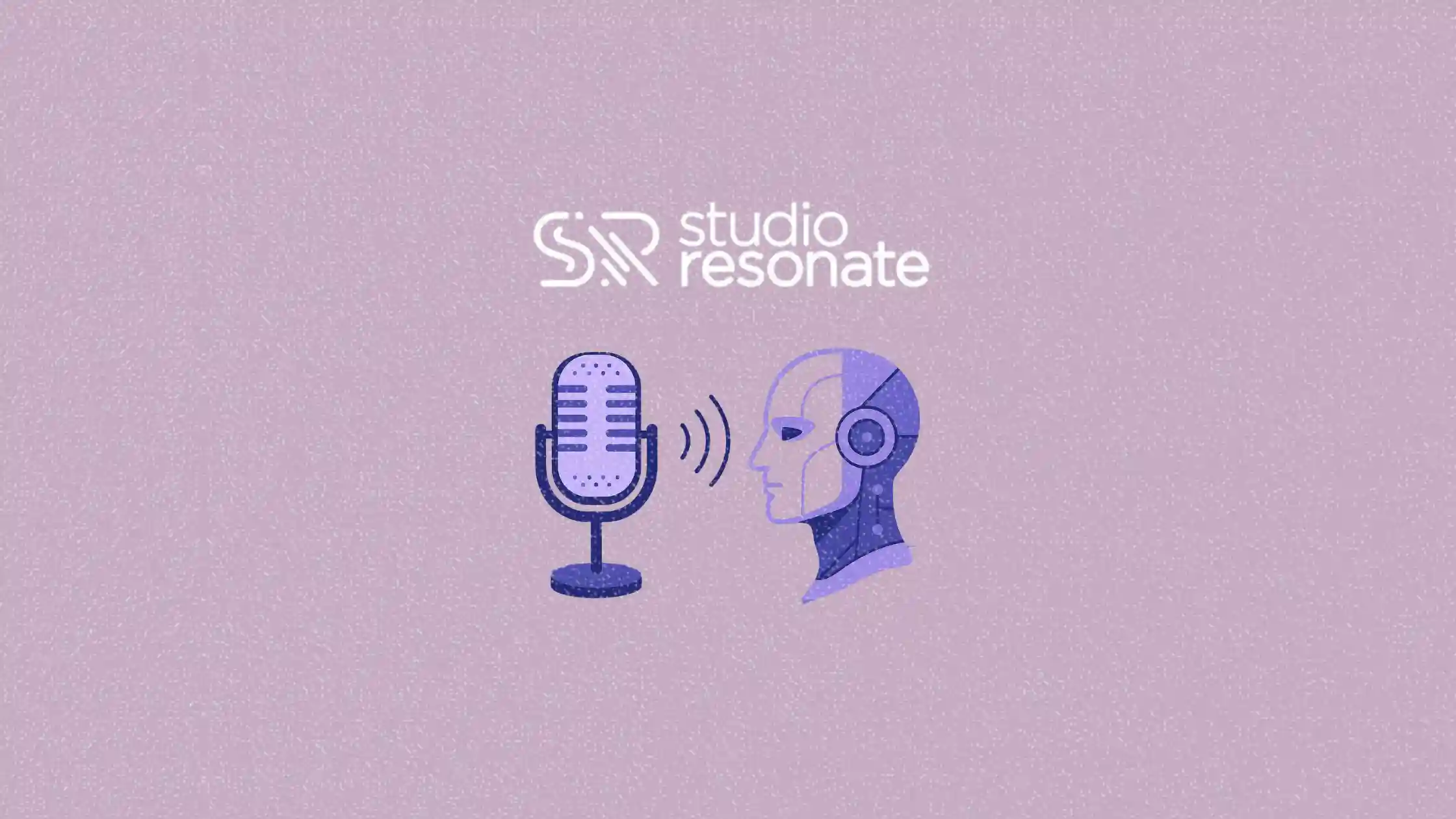Studio Resonate reveals the real impact of AI voices in advertising
AI voiceovers don’t inherently fail, but how they’re framed changes everything

As AI-generated voices become more lifelike, marketers face a growing question: Can synthetic voiceovers be used in ads without sacrificing emotional connection?
Studio Resonate, the in-house audio agency at SiriusXM Media, teamed up with neuromarketing firm CloudArmy to explore this issue at a deeper level. Their study, The Power of the Human Voice in An Age of AI, surveyed 1300 US respondents and revealed that it’s not just about whether a voice is synthetic. What really matters is what people believe they are hearing.
The data shows a surprising psychological bias. Human voices still lead in brand appeal, but labeling something as AI, even incorrectly, can harm how trustworthy and positive a brand feels.
This article explores new research from Studio Resonate and CloudArmy that reveals how audience perception of AI-generated voices, real or not, impacts brand trust and ad effectiveness.
Short on time?
Here’s a table of contents for quick access:
- Key findings from the implicit testing
- Why AI voice labeling can damage trust
- What marketers need to know about voice strategy

Key findings from the implicit testing
To remove outside bias, the study used invented brands across finance, healthcare, and soft drinks. Each human voice was paired with an AI-generated version, matched by gender and ethnicity. This allowed the team to isolate the effect of voice type.
The results were clear:
- Human voices triggered 24% more brand attraction than AI voices
- On trust, human voices scored 23% higher
- Positivity was also 25% stronger for human voices
All of these outcomes were measured at the non-conscious level using implicit testing. This means listeners were not simply stating preferences. Their gut-level reactions revealed what kinds of voices created stronger brand appeal.
Why AI voice labeling can damage trust
In a follow-up test, Studio Resonate introduced a twist. Participants were told they would hear AI voices before listening to the ads, even though many of those ads still featured human voices.
The outcome:
- Trust dropped 27% when listeners were primed to expect an AI voice
- Positivity also dropped across both real and synthetic voice types
- Human voices labeled as AI suffered just as much as the actual AI voices
And here’s the kicker. While 60% of participants claimed they could confidently tell the difference between human and AI, their accuracy was no better than random guessing. Listeners had a 50% chance of getting it right.
The label alone was enough to change how they felt about the ad.
What marketers need to know about voice strategy
Studio Resonate’s study offers a clear message to marketers navigating the rise of AI in audio content. These are the strategic takeaways that matter:
1. Human voices are still your best bet for trust
Especially in categories like finance and healthcare, where credibility drives results, human reads offer stronger subconscious impact.
2. Be strategic about disclosure
Over-communicating that a voice is AI may backfire. While ethical transparency matters, consider softer ways to acknowledge synthetic content without activating listener bias.
3. Use AI where scale and personalization matter most
AI voice replicas can still play a role in dynamic creative and personalized campaigns. The key is knowing when emotional depth is critical and when efficiency takes priority.
4. Test for what audiences feel, not just what they say
Relying solely on surveys misses the implicit, emotional effects of voice type. Use neuromarketing tools or implicit feedback tests for deeper insights.




